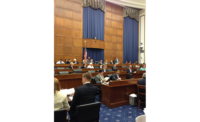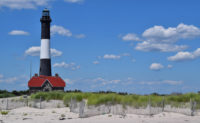Key House lawmakers have unveiled their version of a new Water Resources Development Act (WRDA), a measure that authorizes $5 billion for new Army Corps of Engineers flood control, dredging, environmental and other projects.
The bipartisan proposal, which House Transportation and Infrastructure Committee Chairman Bill Shuster (R-Pa.) introduced on May 23, has a narrower scope than the version that the Senate Environment and Public Works Committee approved in April.
The House measure lacks the Senate panel’s major provisions and funding for drinking water and wastewater projects, which help boost its cost to about $11 billion.
House committee Chairman Bill Shuster (R-Pa.) has set a May 25 committee meeting to amend and vote on it.
Shuster and the other committee leaders want to return to passing WRDA bills every two years. That was the general timetable for WRDAs in the late 1960s and early 1970s and again in the late 1980s and early 1990s, according to John Doyle, special counsel with law and lobbying firm Jones Walker LLP.
The last such bill, the Water Resources Reform and Development Act, was signed in 2014, more than six years after the preceding WRDA became law.
Shuster said in a statement that the new WRDA proposal “gets Congress back to basics and the business of regularly addressing the needs of our ports, waterways, lock and dam systems, flood protection and other infrastructure.”
The heart of the House proposal is its set of authorizations for 28 Corps projects that have been recommended by the Army Chief of Engineers. The Senate version, which only included projects with “chief’s reports,” authorizes 27.
Both the House bill and the Senate committee version authorize about $5 billion for new Corps projects. But those funds are subject to annual appropriations.
The transportation committee’s top Democrat, Peter DeFazio of Oregon, said that the legislation also has “a critical provision to ensure that, in the future, funds collected in the Harbor Maintenance Trust Fund will be used for their intended purpose—harbor maintenance.”
Story updated on May 24 with date of bill's introduction.




Post a comment to this article
Report Abusive Comment